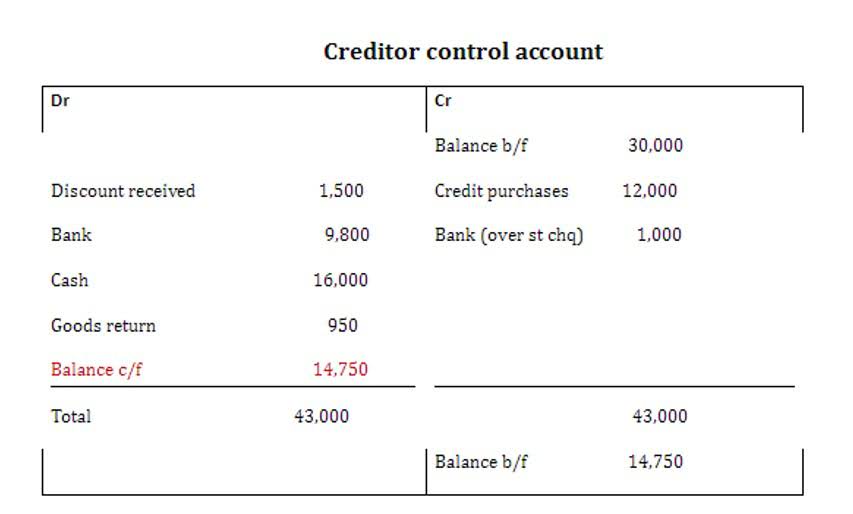
Based on the information you get, you might decide a certain item is too expensive to produce and discontinue it. Alternatively, you could see that a particular service earns your company the bulk of your money, so you might want to allocate more resources toward that department to maximize profits while minimizing losses. Below is a break down of subject weightings in the FMVA® financial analyst program. As you can see there is a heavy focus on financial modeling, finance, Excel, business valuation, budgeting/forecasting, PowerPoint presentations, accounting and business strategy. Accounting is the technique of recording transactions in a scientific way. Tracks the financial performance of specific projects, ensuring they remain within budget and meet financial objectives.
- These subsidiary ledgers break down accounts into specific categories, offering granular insights into areas such as accounts receivable, accounts payable, or inventory.
- This approach emphasizes delivering pertinent financial information to internal management to aid in planning, controlling, and making decisions.
- Transparent financial reporting builds trust and confidence among stakeholders, including investors, creditors, customers, employees, and the general public.
- This level of detail is invaluable for managing cash flow, monitoring customer relationships, and ensuring timely collections.
- Auditing and forensic accounting represent other important accounting specializations.
- That said, most employers prefer candidates with a degree in business, accounting, or economics.
Inventory Management
- Accountants may become certified with designations, such as Certified Public Accountant (CPA) in the U.S., Chartered Accountant (ACA) in the U.K., Chartered Professional Accountant (CPA) in Canada, and so on.
- The ARPL is a coalition of various advanced professional groups including engineers, accountants, and architects.
- Automation also ensures that complex calculations, such as depreciation schedules or tax provisions, are handled accurately and consistently.
- Accounts are the building blocks of any accounting system, serving as the foundation for recording, categorizing, and summarizing financial transactions.
For example, the most common accounting for external people is called GAAP (Generally Accepted Accounting Principles). The US tax authorities, on the other hand, will want to hear your story using the Internal Revenue Code (IRC). This narrative is crafted through meticulous financial analysis and strategic interpretation, revealing the nuances of the business’s economic journey.

Cash Flow Statement
Accountants have a responsibility to ensure that their reports are truthful, transparent, and free from manipulation. Breaches of accounting ethics, such as fraud or misrepresentation, can have severe consequences, including legal penalties and damage to reputation. In addition to being relevant and reliable, accounting information should be comparable and consistent. Comparability refers to the ability to make relevant comparisons between two or more companies in the same industry at a point in time. Consistency refers to the ability to make relevant comparisons within the same company over a period what is accounting of time.
What Is Managerial Accounting?
Luca Pacioli, in his book ‘Summa de arithmetica, geometria, proportioni et proportionalita’, was the first to mention the formula for transcribing business transactions. Based on this the systematic journey of accounting begins in the recording of transactional transactions. Additionally, maintaining accurate and up-to-date records ensures adherence with tax regulations, streamlining the tax filing procedure and avoiding potential penalties. This highlights how Accounting is essential for day-to-day operations and long-term retained earnings balance sheet financial planning.
- Accounting is more than just reporting income to taxing authorities or providing revenue and expense information to potential investors.
- Tax professionals include CPAs, attorneys, accountants, brokers, financial planners and more.
- They are responsible for determining an organization’s overall wealth and profitability.
- In the other example, the utility expense would have been recorded in August (the period when the invoice was paid).

As such, it’s meant to transform financial data into decision-making intelligence for company leaders. How https://www.bookstime.com/articles/outstanding-checks might industry shifts change profitability in the next few years? Proper accounting helps organizations ensure accurate reporting of financial assets and liabilities. Internal Revenue Service (IRS) and the Canada Revenue Agency (CRA), use standardized accounting financial statements to assess a company’s declared gross revenue and net income. The system of accounting helps to ensure that a company’s financial statements are legally and accurately reported.


Specialises in preparing and filing tax returns while ensuring compliance with tax laws and identifying tax-saving opportunities. In the example above, the consulting firm would have recorded $1,000 of consulting revenue when it received the payment. The simple things we do and encounter everyday can actually be related to some level of accounting. You make budgets, count change and check the receipts from the supermarket.

Leave a comment